Artificial intelligence (AI) has revolutionized the way we approach search engine optimization (SEO) and digital marketing. With the emergence of clever algorithms and machine learning, there’s been a lot of hype about the capacity of AI-powered SEO solutions to magically raise your website’s rating and get you on the top page of Google in only 17 hours. However, the fact is that there is no such magic recipe that assures rapid success.

In this piece, we’ll be refuting the fiction surrounding AI SEO magic and exploring the reality of what it takes to develop a successful SEO plan. We will dig into the subject of SEO and offer you a deep grasp of how AI can help you boost your search engine rankings. Get ready to uncover the truth about AI SEO magic and start establishing a solid foundation for your website’s SEO success.
Read More : Top 10 Mind Blowing Artificial Intelligence Tools In 2023
The myth of AI SEO wizardry
Artificial Intelligence (AI) is the buzzword of the time. It’s a word that’s bandied about a lot in the world of SEO, often with the promise of fast results and the capacity to rank on the top page of Google within only 17 hours.
But the reality is, the notion of AI SEO wizardry is just that: a myth. While AI does play an essential part in current SEO, it’s not a magical solution that will suddenly enhance your ranks and generate visitors to your website.
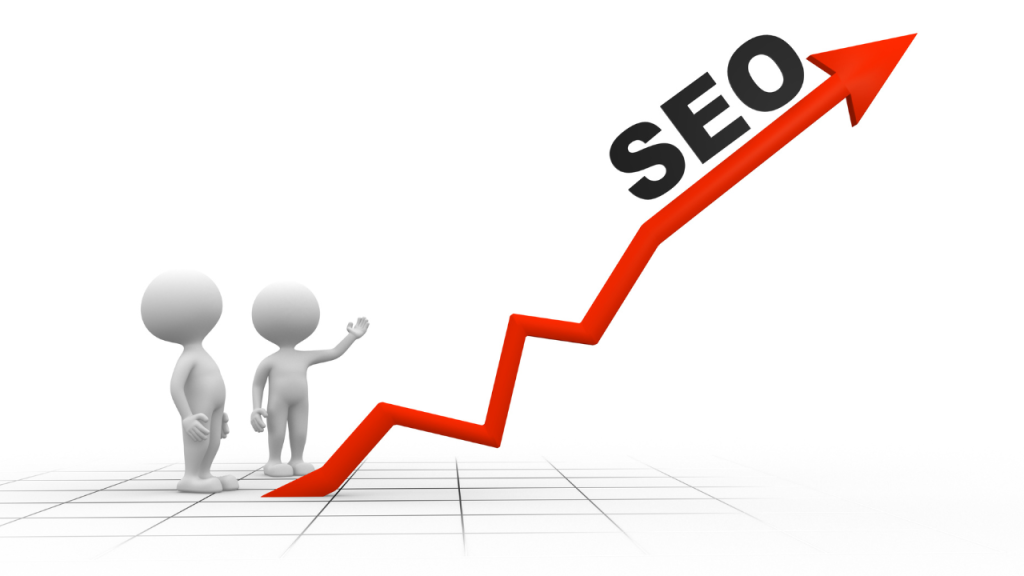
The fact is that SEO is a sophisticated, continuing process that involves a lot of time, effort, and knowledge. It’s not something that can be mechanized or attained by a fast fix.
While AI may clearly help with certain areas of SEO, such as keyword research and content optimization, it’s not a replacement for human skill and analysis. In fact, depending too much on AI might actually hinder your SEO efforts, since it can lead to a lack of originality and strategic thinking.
So, the next time you hear the promise of AI SEO wizardry, consider it with a grain of salt. While AI may undoubtedly be a valuable weapon in your SEO armory, it’s not a miracle cure that will instantaneously address all of your ranking difficulties.
The 17-hour first page ranking myth
The 17-hour first page ranking myth is one of the most persistent misunderstandings in the SEO field. The assumption that an automated AI SEO solution could ensure a first-page placement on Google within only 17 hours is just not accurate. In actuality, attaining a high position on Google is a difficult process that needs hard effort, dedication, and a detailed grasp of how the search engine works.
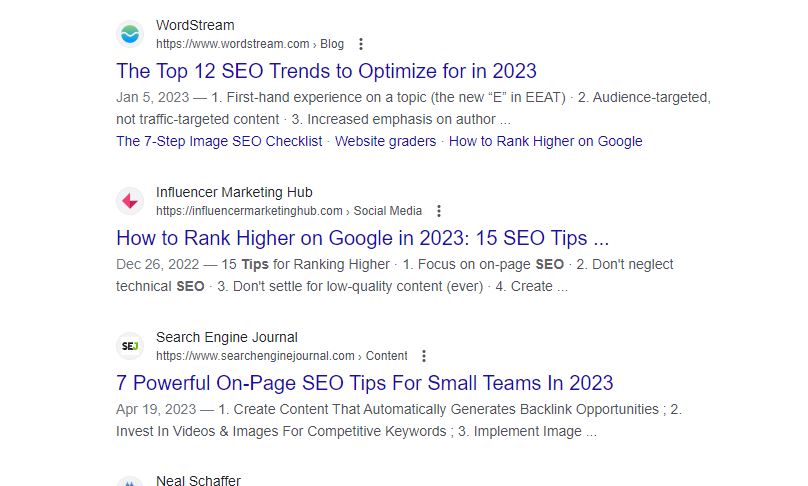
While there are plenty of AI SEO tools available on the market that claim to be able to help you achieve quick and easy rankings, the truth is that these tools often rely on shady tactics like keyword stuffing, link spamming, and other blackhat techniques that can actually harm your website’s search engine ranking in the long run.
The fact is that obtaining a first-page placement on Google takes time, effort, and a great SEO plan. It entails developing high-quality content, building high-quality backlinks, optimizing your website for keywords, and remaining up-to-date with the newest SEO trends and best practices. While AI SEO tools may surely aid you in this process, they are not a miracle solution that will guarantee you a first-page ranking in just 17 hours.
What is AI SEO and how does it work?
AI SEO, or Artificial Intelligence Search Engine Optimization, is the application of machine learning algorithms to increase the ranking and exposure of websites on search engine results pages (SERPs). The purpose of AI SEO is to forecast search engine algorithms and give better results for people depending on their search queries. AI SEO is a relatively new idea that has gained popularity in recent years due to improvements in machine learning and the necessity to keep ahead of competition in the digital realm.

One method AI SEO works is by monitoring user behavior and preferences to provide customised search results. For example, if a person often looks for vegan recipes, AI algorithms would highlight vegan recipe websites in their search results. AI SEO also examines the content of websites to grasp the context and meaning of the text, photos, and videos. This helps search engines to give more relevant results for users and enhance the overall user experience.
Another part of AI SEO is natural language processing (NLP), which helps search engines comprehend and understand natural language inquiries. This implies that search engines can process complicated searches and offer more accurate results. For example, if a user searches for “best pizza places near me that deliver gluten-free options”, AI SEO algorithms may analyse this query and return appropriate results.

Overall, AI SEO is a strong tool that may help businesses increase their online presence and acquire more clients. However, it’s vital to understand that AI SEO is not a magic solution that ensures first-page ranks. It’s still crucial to have excellent content, good keyword research, and other classic SEO methods in place to increase your website’s ranking on SERPs.
The limits of AI SEO
While AI SEO has clearly made enormous gains in recent years, it’s crucial to realize its limitations. First and foremost, AI is only as good as the data it’s fed. This implies that if the data is inadequate or erroneous, the findings will be as well.
Additionally, AI is not capable of comprehending human behavior and emotions the way a person can. This implies that while it may be able to evaluate keywords and content, it cannot genuinely grasp the purpose behind them.
Another crucial constraint to consider is that AI is not a silver bullet. It may surely assist to streamline and automate certain areas of SEO, but it cannot replace human skill and creativity. Ultimately, it’s up to human SEO specialists to analyze and act on the data offered by AI in order to design effective SEO strategies.

It’s also worth emphasizing that the usage of AI in SEO is not a one-size-fits-all approach. It may operate better for certain sectors or types of enterprises than others. It’s crucial to thoroughly assess if AI is the correct solution for your particular website and SEO goals.
In conclusion, while AI may be a strong tool in SEO, it’s crucial to recognize its limitations and utilize it in conjunction with human experience in order to obtain the greatest results.
The significance of content and user experience
Despite all the buzz surrounding AI SEO, content and user experience remain as vital as ever. In reality, AI SEO is meant to reward websites that deliver high-quality content and a pleasant user experience, so it’s crucial to focus on these characteristics while optimizing your site for search engines.
Firstly, your material ought to be relevant, useful, and entertaining. It should be created with your target audience in mind and should answer their queries and meet their wants. Use important keywords naturally throughout your content, but don’t overstuff your pages since this might be punished by search engines.

Secondly, your website’s user experience ought to be top-notch. This includes having a fast-loading website, easy navigation, and responsive design that performs well on all devices. Users should be able to locate what they’re searching for quickly and effortlessly, and their experience should be enjoyable from start to finish.
Remember, the ultimate objective of AI SEO is to deliver the greatest possible experience for consumers, so if you focus on providing high-quality content and a wonderful user experience, you’ll be well on your way to obtaining higher search ranks.
How to optimize your content for search engines
Optimizing your content for search engines is vital if you want to rank higher in search engine results pages. Here are some strategies to help you improve your content for SEO:
- Conduct keyword research: Keyword research is the cornerstone of SEO. It helps you find the keywords and phrases that people are using to search for your products or services.
- Optimize your titles: Your title is the first thing that visitors see when they search for your content. Make sure that your title is catchy, informative, and incorporates your goal keyword.
- Use header tags: Header tags (H1, H2, H3) assist search engines comprehend the structure of your content. Use them to divide up your information into sections and make it simpler to read.
- Optimize your meta description: Your meta description is a short overview of your content that shows on search engine results pages. Make sure that it appropriately represents your content and contains your target keyword.
- Use internal and external links: Internal links assist search engines comprehend the structure of your website and how your content is linked. External links to high-authority sites can also assist increase your SEO.
- Optimize your photos: Make sure that your photographs are optimized for search engines by utilizing alt tags and descriptive file names.
Remember, SEO is a continual activity. You should be continually upgrading your material and optimizing it for search engines to guarantee that you are always ranking as high as possible in search engine results pages.
The function of keywords in SEO
Keywords play a critical part in SEO, but their relevance has varied over the years. In the early days of SEO, keyword stuffing was a widespread practice used to influence search engines. Nowadays, search engines have gotten more smart and punish websites for utilizing this spamming method.
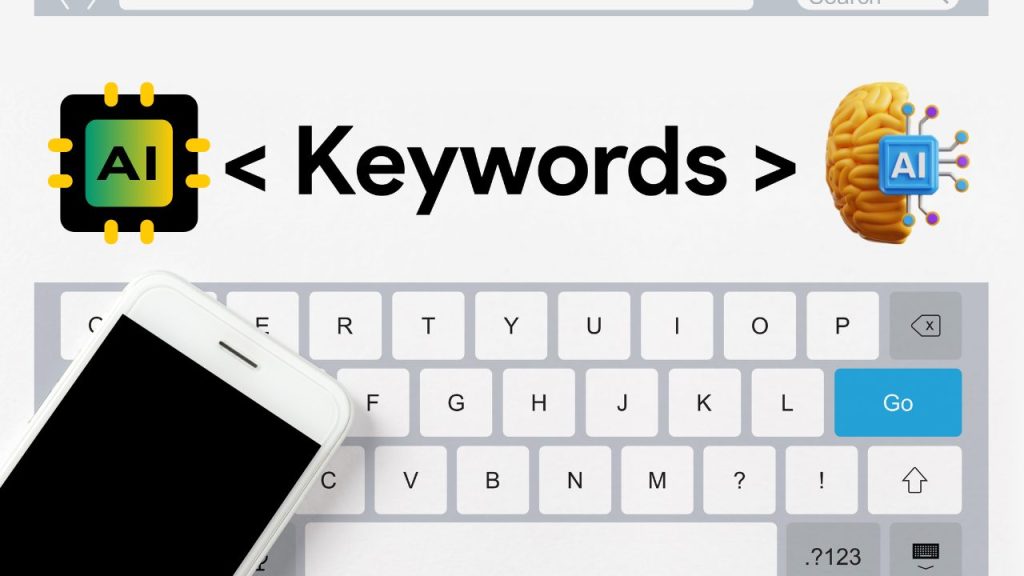
However, that doesn’t mean that keywords are no longer significant. They still play a significant role in SEO and must be used carefully. The idea is to use them in a natural and relevant way that delivers value to the consumer.
One approach to do this is to undertake detailed keyword research to learn what your target audience is searching for. This will enable you to determine the most relevant keywords and phrases to use in your text. Remember, it’s not about utilizing as many keywords as possible but rather employing the appropriate keywords in the proper locations.
Another significant feature of keywords in SEO is their location. Keywords must be included in crucial on-page components such as the title tag, meta description, and header tags. But again, it’s vital to utilize them naturally and not to over-optimize your text.

In summary, while the importance of keywords in SEO has evolved, they remain a significant aspect in ranking highly on search engines. They must be utilized wisely and organically in your content to give value to the user and boost your search engine exposure.
Content quality vs. quantity
One of the major controversies in the world of SEO is whether content quality or quantity is more significant when it comes to ranking on search engines.
While it’s true that quantity of material can boost the possibilities of your website being viewed by search engines, the quality of your content can influence whether or not a person connects with your website and eventually decides to become a client.
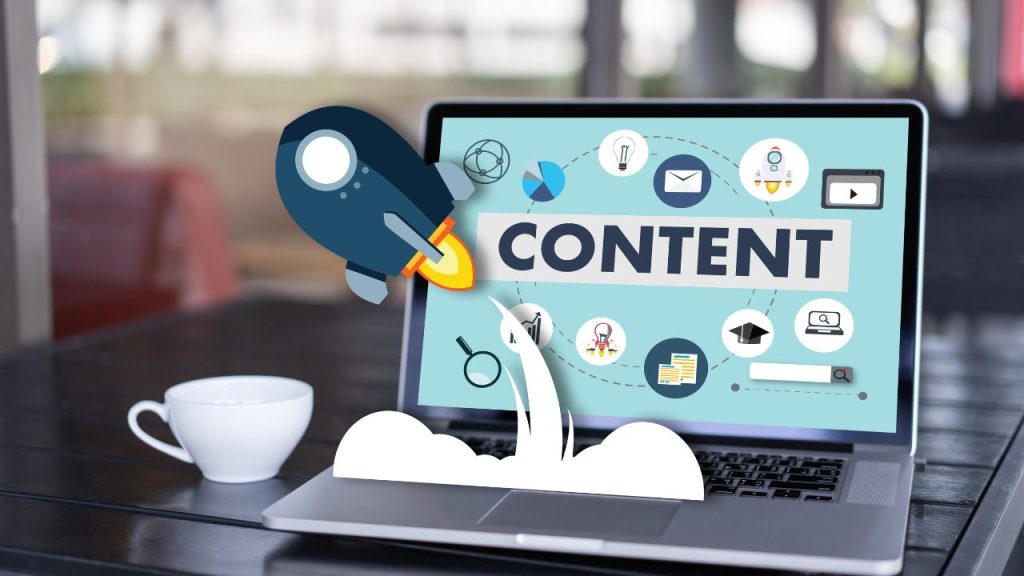
Search engines have grown smarter over the years and can now discern whether information is shallow or badly written. Quality content that is relevant to the user’s search query, instructive, and engaging is more likely to rank higher on search engine results pages (SERPs) than material that is badly written or irrelevant.
It’s crucial to remember that quality and quantity are not mutually incompatible. It’s feasible to develop high-quality content in huge volumes by having a robust content strategy in place. By constructing a content schedule, choosing target keywords, and completing comprehensive research on the topics you want to cover, you can guarantee that the material you generate is both high-quality and abundant.

In summary, while having a lot of material on your website will boost your chances of being found by search engines, it’s the quality of your content that will ultimately determine whether or not consumers engage with your website and become customers. Focus on providing high-quality content that is educational, interesting, and relevant to your target audience, and the rest will fall into place.
The influence of backlinks on SEO
Backlinks are a crucial aspect in SEO, since they indicate to search engines that your website is a credible and trustworthy source of information. High-quality backlinks from reputable websites may considerably increase your search engine ranks, whereas low-quality or spammy backlinks can impair your results and potentially lead to penalties from search engines.
However, it’s crucial to remember that the influence of backlinks on SEO has evolved over time, and search engines now place a larger focus on the quality and relevancy of backlinks, rather than merely the amount of links leading to your site.

This implies that it’s more crucial than ever to work on building high-quality, relevant backlinks from reputable websites within your topic. This may be done through strategies such as guest blogging, influencer outreach, and providing shareable content that organically draws backlinks.
It’s also crucial to periodically analyze your backlink profile and disavow any low-quality or spammy backlinks that may be damaging your SEO efforts. By concentrating on establishing high-quality backlinks and keeping a healthy backlink profile, you may enhance your SEO rankings and bring more focused visitors to your website.
The future of AI SEO
The future of AI SEO is fascinating and fast growing. As artificial intelligence continues to improve, it has the potential to transform the way we approach search engine optimization. With AI-powered technologies, we can now analyze large volumes of data, detect trends, and make predictions about user behavior and search engine algorithms.

Some of the methods in which AI is now being applied in SEO include natural language processing, picture recognition, and predictive analytics. Natural language processing helps search engines to better grasp the meaning behind search requests and give more relevant results. Image recognition helps search engines to evaluate and categorize visual material, making it more searchable. Predictive analytics employs machine learning algorithms to evaluate data and create predictions about future search patterns and user behavior.
AI is also being utilized to automate many of the more onerous components of SEO, such as keyword research, content optimization, and link building. This not only saves time and boosts productivity, but it also allows SEO specialists to focus on more strategic jobs that need human knowledge and creativity.
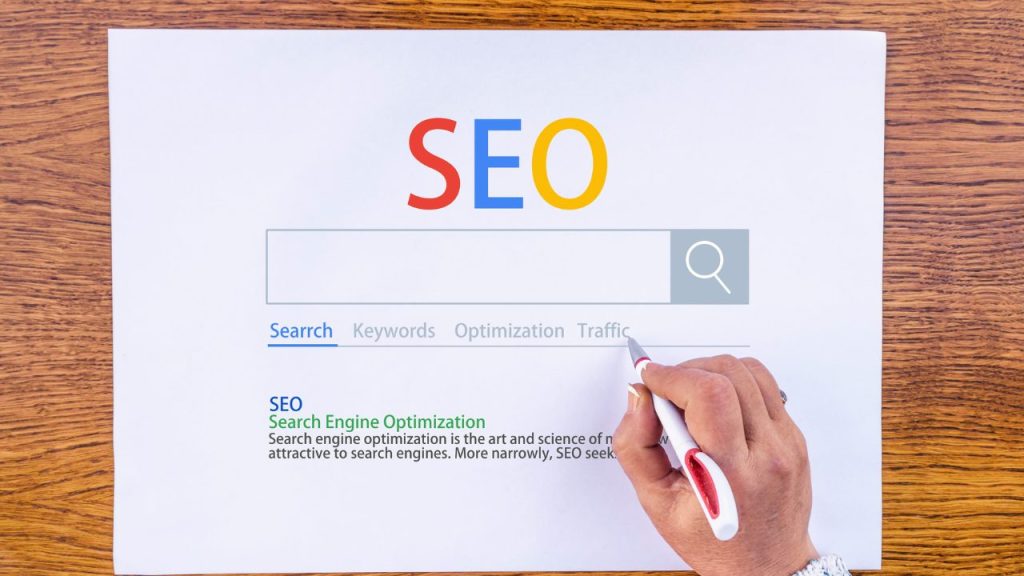
While AI is still in its early phases, it has already showed significant potential in boosting search engine rankings and increasing website traffic. As AI continues to improve, it will surely become a crucial tool for any organization wanting to remain ahead in the increasingly competitive world of online marketing.
- Debunking additional prevalent SEO misconceptions
SEO, like many other industries, is replete with myths and fallacies. It’s crucial to differentiate reality from fiction to guarantee that you are making the appropriate selections for your website’s SEO. Here are some of the most prevalent SEO fallacies that need to be debunked:
- SEO is a one-time task: SEO is a continuous process that involves continual monitoring, adjusting, and improvement.
- SEO is a fast fix: SEO is a long-term approach that might take months or even years to see benefits.
- Keyword stuffing is effective: Keyword stuffing can actually affect your website’s rating since search engines regard it to be spammy.
- Link building is dead: Link building is still a significant ranking element, but the focus should be on quality over quantity.
- Social media doesn’t effect SEO: Social media may indirectly impact SEO by improving brand recognition and bringing visitors to your website.
- SEO is simply about ranking: SEO is not only about ranking, it’s also about user experience, website speed, and mobile-friendliness.
By busting these myths, you may obtain a better knowledge of what SEO truly comprises and make educated decisions regarding your website’s optimization plan.
Strategies for boosting your website’s SEO
Improving your website’s SEO might be a difficult process, but there are some basic tactics you can follow to get started.

First and foremost, ensure sure your website is mobile-friendly. More and more people are exploring the internet on their mobile devices, and Google has even made mobile-friendliness a ranking criterion. You may use Google’s Mobile-Friendly Test to assess how well your website does on mobile devices.
Next, focus on developing high-quality, relevant material. Google’s algorithms are meant to highlight websites that give quality material to their customers. Make sure your material is well-written, educational, and entertaining. Use keywords carefully, but don’t overuse it. Keyword stuffing can really affect your SEO.
Another key method is establishing high-quality backlinks to your website. Backlinks are links from other websites that point to your site. Google considers backlinks as an indication of authority and relevancy. You may create backlinks by providing shareable content, reaching out to other websites in your niche, and guest blogging on related blogs.

Finally, ensure sure your website is optimized for speed. Slow-loading websites may significantly effect user experience and eventually hurt your SEO. You may use Google’s PageSpeed Insights tool to analyze how well your website performs in terms of performance and obtain tips for improvement.
By applying these tactics, you may enhance your website’s SEO and raise your chances of ranking higher on search engine results pages.
The necessity of remaining up to current with SEO trends
SEO trends are continuously shifting, and as a website owner or marketer, it’s crucial to stay up to speed with the current trends in order to guarantee that your website is visible to your target audience.
By remaining up to date with SEO trends, you can guarantee that your website is optimized for the newest search engines and ranking considerations. This means that your website will be more readily found by consumers searching for your products or services, and you’ll be able to keep ahead of the competition.
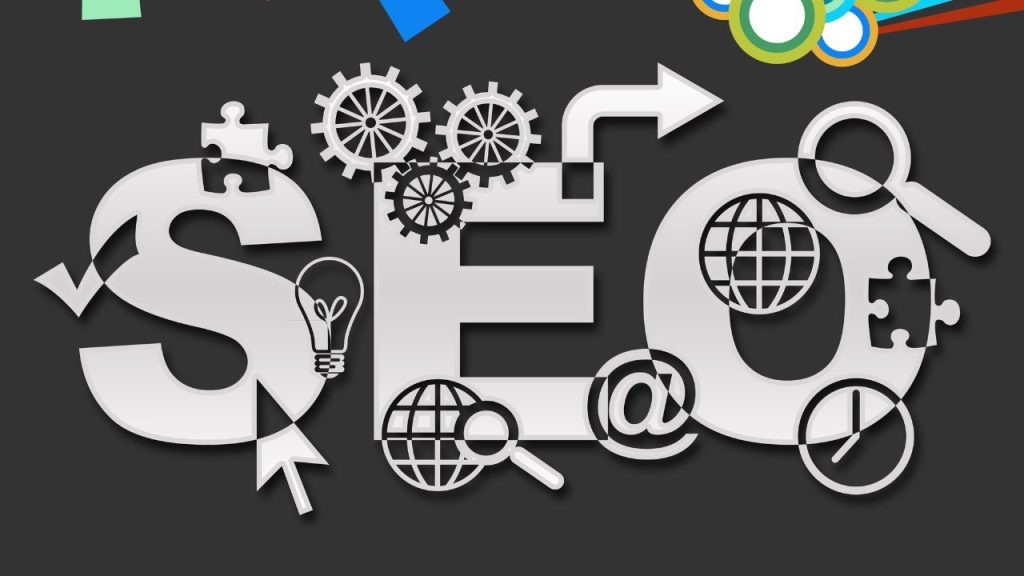
For example, with the advent of voice search and smartphone search, it’s crucial to ensure that your website is optimized for these sorts of searches. Additionally, since Google continues to favor website performance and user experience in its ranking algorithms, it’s crucial to ensure that your website is quick, easy to use, and delivers a fantastic user experience.
Staying up to date with SEO trends may be performed through numerous ways, such as attending industry conferences and events, reading SEO blogs and news sites, and keeping a watch on changes to search engine algorithms and ranking criteria. By remaining on top of these trends, you can guarantee that your website stays visible to your target demographic, and that you continue to generate traffic and conversions to your site.
Conclusion and takeaway message
In conclusion, it is crucial to recognize that there is no magic way to getting a first-page position on search engines. While AI and machine learning may surely aid in the SEO process, there is no substitute for hard work and constant effort.

It is crucial to focus on developing high-quality content that is relevant to your target audience and to optimize it efficiently utilizing lawful SEO approaches. Keyword research, on-page optimization, link building, and regular changes to your website and content are all key components of a successful SEO plan.
Furthermore, it is crucial to be patient and persistent in your attempts. SEO is not a fast cure or a one-time solution, but rather a long-term process that demands continuing attention and work.
Ultimately, the major takeaway point is that there are no shortcuts when it comes to SEO. By focusing on developing outstanding content and optimizing it efficiently, you may boost your chances of attaining a better search engine ranking over time. So, keep focused and persistent, and the results will come.
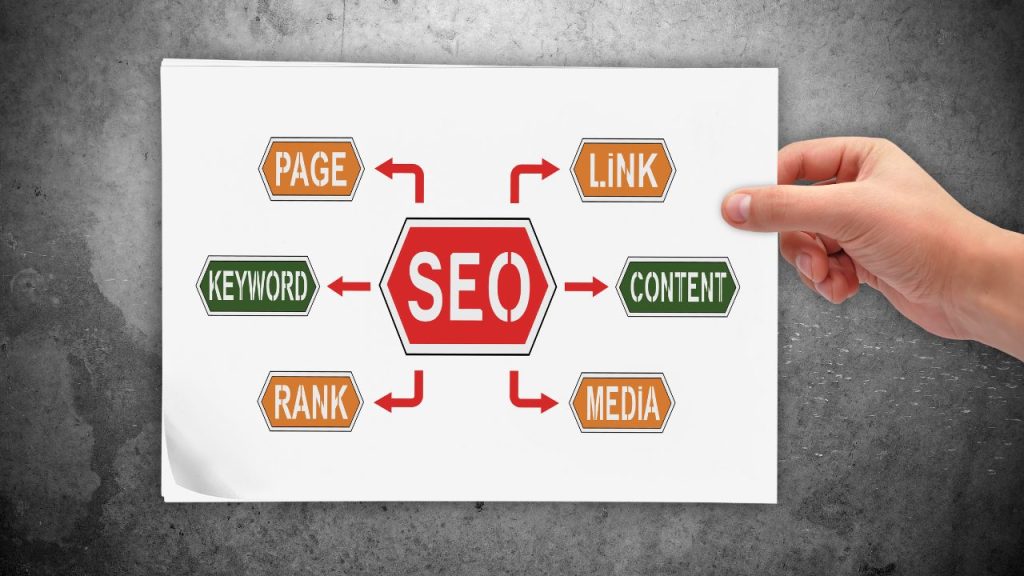
We hope you found our blog article interesting and instructive. The reality about AI SEO magic is that it’s not magic at all, but a combination of hard effort, planning, and a little bit of luck. While certain SEO methods can be highly powerful, there’s no such thing as an instant triumph. Remember that SEO is a long-term approach that takes patience and effort. Keep these items in mind while you work on your SEO efforts, and you’ll be well on your way to accomplishing your goals. Thank you for reading our post, and we hope you found it helpful!
More FAQ For AI SEO
Is AI good for SEO?
AI is also a wonderful tool for data analysis, which is a crucial aspect of building a successful SEO strategy. From helping you uncover trending themes to discovering content gaps, you can execute jobs faster and more efficiently using AI-powered SEO tools.
What does AI mean for SEO?
Artificial intelligence (AI) has irrevocably impacted search. Users are getting personalised search results based on their past habits, their devices, their locations, and hundreds of other criteria. The search engines increasingly know what users want.
Does AI content rank in Google?
Yes, AI-generated content can rank on Google. Google has made it plain that AI-generated content has the ability to rank on its search engine. As Google emphasizes, its focus is on the quality of material, regardless of how it is produced.
Can AI replace SEO?
There is nothing to suggest thus far that AI will replace SEO or SEO practitioners. While AI has become a valuable resource to augment SEO and get repetitive chores out of the way faster, humans are still very much needed for planning & editorial work.
Will SEO exist in 5 years?
Will SEO exist in 5 years? Yes, SEO will exist for the foreseeable future. Businesses rely on SEO to ensure their content appears in SERPs, even as algorithms and features adjust to users’ needs. This won’t change within the next few of years.
What is the best AI tool for keywords?
Semrush is considered the best free AI SEO tool due to its wide range of features. With 76 AI SEO tools, including competitor keyword analysis, link-building strategies, and on-page SEO optimization, Semrush provides comprehensive support.
Read More : C++ or Java | Which coding language to learn in 2023 ?

Hello I am Habib Hasan. I am an Internet Marketing Expert, Business Advisor, Programmer and Tech Advisor with skills in Technical SEO and Web Design, Web Developer.
